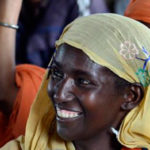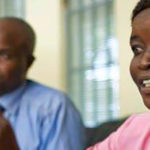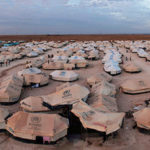Conflict is inherent in all societies and arises when two or more groups believe their interests are incompatible. ‘Conflict’ is not, however, interchangeable with ‘violence’. Non-violent resolution is possible when individuals and groups have trust in their governing structures, society and institutions to manage incompatible interests. Conflict becomes a problem when this ...» more
Topic Guides
Our Topic Guides aim to provide a clear, concise and objective report on findings from rigorous research on critical areas of development policy. They highlight the key debates and evidence on the topic of focus, including on approaches and lessons. They are produced in close collaboration with international experts and with practitioners in DFID.
Statebuilding and peacebuilding
Statebuilding and peacebuilding, while conceptually distinct, are becoming more closely integrated in academic and policy circles. This Topic Guide looks at the links (and tensions) between statebuilding and peacebuilding, how these activities interact, and how they can be approached in practice. A related Guide looks at State-Society Relations and Citizenship in Situations of ...» more
Gender
Gender is a way of looking at how social norms and power structures affect different groups of men and women. Understanding that men and women, boys and girls experience poverty differently, and face different barriers in accessing services, economic resources and political opportunities, helps to target interventions. ...» more
Disaster resilience
The impacts of disasters on development, poverty and vulnerability have led to calls for improving disaster resilience – the capacity to cope with and adapt to shocks and stresses associated with natural hazards. What do we know about what can enable or constrain disaster resilience? This Topic Guide for policymakers and practitioners synthesises the evidence, approaches and ...» more
Civil service reform
Improving a country's civil service can further development goals. Reforming the civil service is important in improving governance, service delivery, economic policy and public financial management. What do we know about what has – or hasn't – worked in civil service reform, and where? What lessons emerge from the literature? ...» more
International legal frameworks for humanitarian action
International legal frameworks for humanitarian action provide guidance on delivering assistance in a variety of challenging contexts. They can also be powerful tools in advocating for, and achieving, the protection of civilians. ...» more
Measuring results
How can the impact of governance and social development programmes be assessed with a view to improving their efficiency and effectiveness? What particular challenges are involved in monitoring and evaluating development interventions, and how can these be addressed? How can the ‘value for money’ of a particular intervention be determined? Monitoring and evaluation (M&E) ...» more
Communication and governance
This guide introduces some of the best recent literature on the role of communication in governance. It highlights the major critical debates surrounding the relationship between communication, government accountability and responsiveness, and state-society relations in developing countries. It is intended primarily as a reference for policymakers, and highlights practical ...» more








